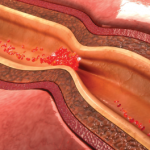Rheumatologists now have another treatment option to offer their patients with one of, if not the most, difficult autoimmune diseases to treat. New data add to the growing evidence of the safety and benefit of stem cell transplantation for patients with systemic sclerosis with internal organ involvement. New results of the Scleroderma: Cyclophosphamide or Transplantation…






